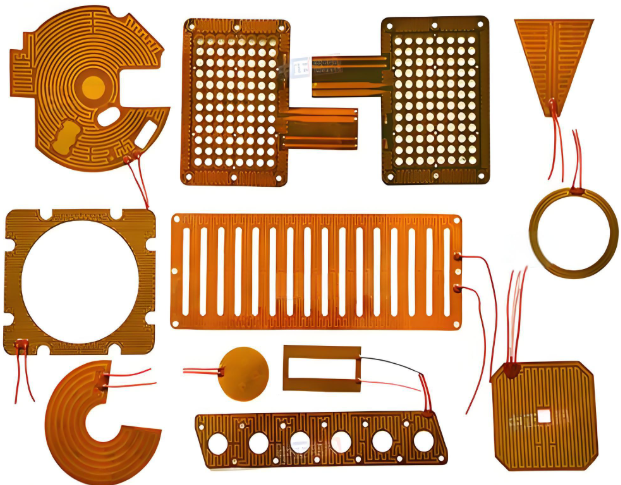Polyimide (PI) flexible heaters are widely used in industries such as medical devices, aerospace, electronics, and battery heating due to their thin profile, fast thermal response, and high flexibility.
However, their reliability and performance are critical, especially in demanding applications. To ensure long-term stability and safety, PI flexible heaters must undergo a series of reliability tests. These tests evaluate electrical safety, insulation, thermal endurance, and mechanical strength. There are 5 points tests that PI heating film must do.

PI Heaters
Purpose: To ensure the heater can safely withstand high voltage without breakdown or leakage.
Even if the customer does not specify a voltage test, this is generally performed to confirm electrical safety and prevent potential short circuits or arcing during operation.
To verify the electrical insulation between the conductor and the outer surface, PI flexible heater manufacturers always perform insulation resistance test to ensure there is no leakage current occurs. The testing condition is DC 1000V, impedance > 100MΩ.
High insulation resistance indicates excellent protection against electric shock and long-term operational reliability. This test is particularly important for heaters in sensitive electronics and medical devices.
This test is used to check how the heater performs under rapid temperature changes.
This test ensures the heater can tolerate extreme temperature fluctuations without material cracking, delamination, or resistance changes. If the customer provides specific requirements, testing parameters are adjusted accordingly.
A heater may fail if the leads break or detach during use, so this test verifies that the connection is secure and durable. Customer requirements may modify the standard pull force.
This test is essential for applications exposed to humid or harsh environmental conditions, ensuring the heater remains stable and functional over time.
Performing reliability tests is not just about meeting industry standards — it ensures:
Customer Confidence: Provides verification that the product meets or exceeds expected specifications.
Reliability testing is a critical step in PI flexible heater manufacturing. Even though some tests are optional based on customer requests, standard tests such as dielectric withstand, insulation resistance, and high-temperature humidity tests help ensure safe, stable, and durable performance.
At Danyu electronics, we rigorously perform all necessary reliability tests on our PI heaters. From dielectric and insulation testing to thermal shock and wire pull strength, our engineers ensure each heater meets strict quality and safety standards before shipment.
If you need a custom PI flexible heater designed for high reliability and long-term operation, contact us at sales@best-heaters.com. Our team can guide you on testing options based on your specific application requirements.
1. Is the dielectric withstand test required for all PI heaters?
No, it’s performed by default unless the customer specifies otherwise, with standard voltages of AC 1200V (PI) and AC 1500V (silicone/epoxy).
2. What is the purpose of insulation resistance testing?
It ensures no leakage current exists and confirms electrical insulation integrity between conductors and the heater surface.
3. How are thermal shock tests performed?
Heaters are cycled between -25℃ and 125℃ every 4 hours to simulate extreme temperature changes.
4. Why is the wire pull test necessary?
It verifies the mechanical strength of the leads and prevents failures during handling or installation.
5. What does high-temperature and humidity testing check?
It confirms the heater maintains performance under prolonged exposure to heat and moisture, simulating harsh operating environments.
Simply drop your email or phone number in the contact form, and we'll promptly reply you shortly.